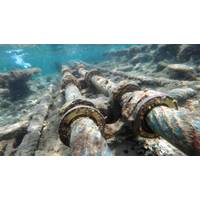Glencore Raises Money for Kurdish Oil Deal, Likely Short of Target
Glencore will likely fall short of its target of raising $550 million to pre-finance the purchase of Kurdish oil, with investors exercising caution despite the offer of a 12 percent bond yield, industry sources told Reuters.
Two sources familiar with the plans said that commodities giant Glencore will price the bond at 12 percent on Tuesday, having received investor commitments for between $200 million and $400 million. Glencore would have to cover the rest itself, though there is obligation to hit the full $550 million.
European traders contending with a protracted oil industry downturn have targeted Kurdish oil since the government of the autonomous Kurdish region in Erbil began selling independently from Baghdad.
The oil has been relatively cheap because of potential supply disruptions and the opposition of Iraq's central government to independent Kurdish oil sales, though Baghdad has softened its tone on Erbil in recent months.
Reuters was first to report Glencore's plans to raise the debt last month.
Rivals such as Vitol, Petraco and Trafigura have lent Erbil about $2 billion in total, to be repaid in oil. The traders have borrowed from banks and lent it to Erbil at their own risk.
Glencore also loaned $300 million to Erbil this year, with the money repaid by way of one mid-sized oil cargo a month, worth about $25 million.
The new bond should allow Glencore to split the risks by selling debt notes to a small number of investors and hedge funds who specialise in high-risk, high-yield investments and emerging markets.
Technically, the money would be raised by a special-purpose vehicle and the debt will be non-recourse, meaning that Glencore will not be liable should problems occur.
Glencore has told investors it expects to enter a new five-year agreement with the government of Kurdistan to buy its crude, with deliveries rising from one cargo in January, to two in February-March, four in April and six from May onwards.
Six cargoes a month would represent a quarter of overall exports from Kurdistan. Industry sources have said that Kurdistan has yet to finalise its export plans for 2017.
Glencore declined to comment.
Kurdistan exports its oil via the Turkish Mediterranean port of Ceyhan. Flows have been running at more than 600,000 barrels per day since September after being occasionally disrupted in 2015 and at the start of this year by militant attacks in Turkey and Kurdistan.
(By Dmitry Zhdannikov)





